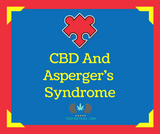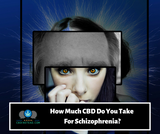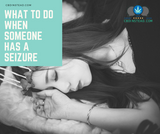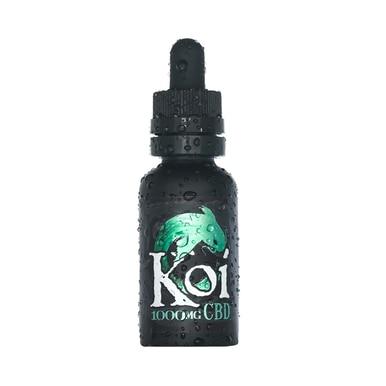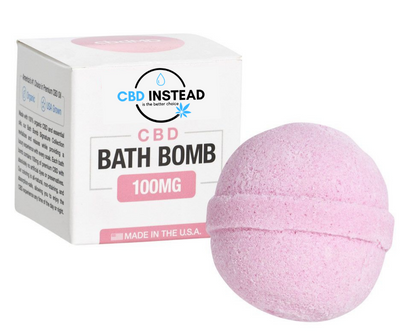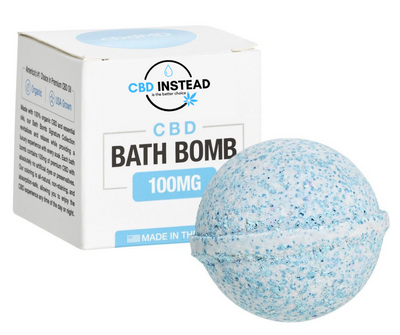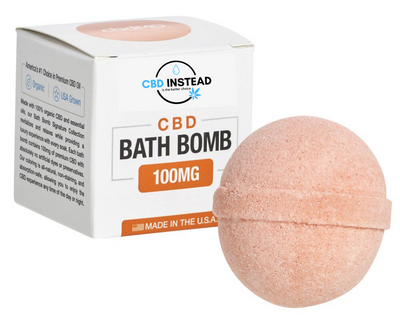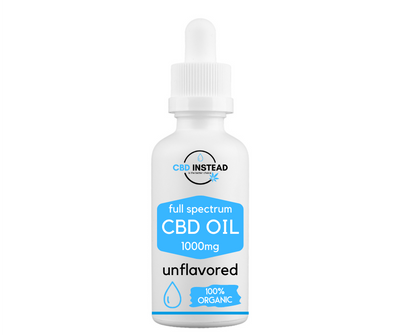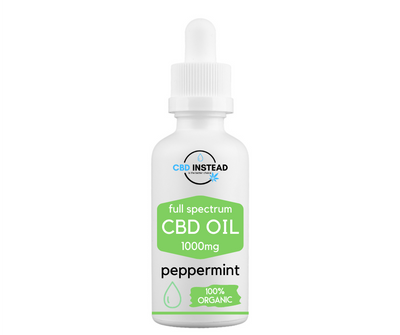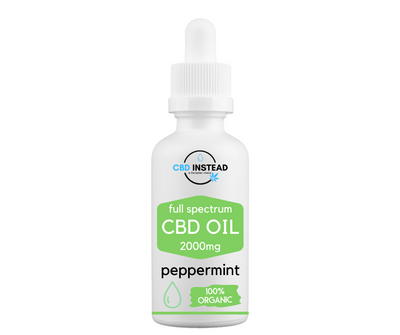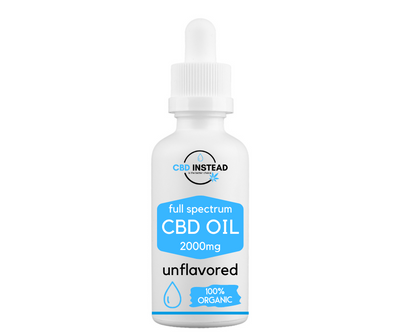Opioid abuse has been a problem in this country for years. In just six years, there has been a 493% increase in diagnosing opioid abuse disorder. Patients and nonpatients alike are getting addicted, and unfortunately, it’s taking lives.
Addiction is a monster that creeps into your brain and confuses it into thinking that a want is a need. Your brain registers the pleasurable sensation as something essential for survival, and only the strong come out alive.
For those who think they are too far gone, there is hope. Imagine if you could calm your brain down while you retrained it out of an addictive mindset. What if you could form your very brain chemistry to work to your benefit? Would you be able to finally conquer your addiction? Well, studies have shown that you can with CBD oil.

Why Are So Many People Struggling With Pain Pill Addiction?
We used to think that the painkiller epidemic started because greedy doctors and big pharma pushed these prescription pills on people, making the addiction more prevalent. It’s easy to see them as the bad guys being the ones in control of distribution. However, recent studies have shown that to not be the case.
The number of addictions has risen since the pharmaceutical companies started advertising for painkillers, but the majority of the patients with a dependency didn’t start from having a prescription. It has actually been friends and family members of people who have access to the drugs legally.
Though it may seem as though we have just a pain pill epidemic on our hands, which we do, it is part of a bigger problem. According to the National Survey of Drug Use and Health, the use of painkillers is one of the lowest on the chart with 3.9% of Americans over the age of 18 using in their lifetime. In comparison, cocaine was at 16% and alcohol use was at 86%. We don’t just have a pain pill problem, we have an addiction problem.
How Do We Stop The Epidemic?
Just like banning marijuana, banning painkillers will not likely work. Most of the people who are abusing this drug, are getting it from drug dealers or friends and family with legal access to the drug. Many people don't use all of the painkillers prescribed after they go through something like surgery, so there is room for improvement when it comes to making this highly addictive drug so available. But there is more that can be done to reduce the fatalities involved in opioid abuse.
Legalizing Marijuana
Of course, this is on the list. By legalizing marijuana, doctors will finally be able to comfortably offer another option when it comes to pain relief. As of right now, there is a blurred line where many doctors don't feel comfortable suggesting treatment that is so looked down upon by the DEA. Considering that cannabis works just as well, there would be no need to eliminate the more powerful forms of opioids. There are cases where short term opioid use may prove more effective after events like intensive surgery. However, there are many occasions when medical marijuana would be just as effective where they now offer only opioid painkillers.
Taking away relief from our hurting patients is inhumane, and not going to happen. Giving them an alternative treatment that is safe and helps them with the same problems will reduce the number of painkillers out on the streets by cutting them down in the medicine cabinets at home.
Focus On Mental Health
We don’t just have an opioid epidemic, we have an addiction epidemic. Addicts are searching for something and finding the bits of joy and fulfillment in a pill or at the bottom of a bottle. Blaming alcohol and blaming these pills is no way to solve the problem, just like blaming the addict themselves. There are plenty of should haves and could haves to say, but the reality never changes when your hindsight is 20/20.
People struggling with addiction need help. There is therapy specific for addicts that can help them get to the root of why they are feeling empty and why they are turning to unhealthy coping mechanisms. Being in the addict mindset changes brain chemistry, so we need to remember there is a person in there crying to get out of this monster that goes through pill bottles faster than they can work for the funds to keep up their habit.

What To Do If You’re The Addict
Maybe this isn’t your battle, maybe you’re just trying to keep from being a casualty. If you are struggling with addiction, it isn’t your job to fix the system. You need to work on yourself, so you can be a beautiful testimony that anything is possible. You can be an ex-addict and still live a fulfilling and successful life. The first thing you must do is kick the habit, and CBD can help you do that.
What Is CBD?
Cannabidiol (CBD) is a chemical that you extract from a marijuana plant. Cannabis is filled with chemicals that benefit your health, and CBD is one of the main two we know most about along with THC. Unlike THC, CBD doesn’t get you high when you consume it. This is because of the way it interacts with a system in our body called the endocannabinoid system.
The Endocannabinoid System
The endocannabinoid system is made up of endocannabinoids, cannabinoid receptors, and metabolic enzymes. Its purpose is to keep the body running normally like a well-oiled machine. When you have a fever, that is your endocannabinoid system raising your body temperature to fight off pathogens. It also is the reason that your emotions don’t last longer than they need to.
Metabolic Enzymes
These proteins create the endocannabinoids needed for the entire system to function. Metabolic enzymes also repair damaged cells and deteriorate the chemicals in the brain that aren’t needed anymore, like endocannabinoids. If these chemicals stayed in your brain forever, the clutter would make it difficult for your brain to communicate with itself which results in a mental and physical health decline.
Endocannabinoids
These chemicals are interesting to scientists because they are made on demand at the moment they are needed. Many chemicals in the brain like dopamine are held in sacks called vesicles and are released when the brain requests them.
Endocannabinoids are also different from most chemicals in the brain because of the way they travel. Typically, a presynaptic cell will send a message to the postsynaptic cell to create the reacts that make you, you. Endocannabinoids travel in the opposite direction through a process called retrograde signaling.
The endocannabinoids leave the postsynaptic cell with a message that tells the sending cell what is needed. If the presynaptic cell is overactive, it will know it needs to calm down and not send so many hormones over. If the cell is underactive, it will get a fire lit beneath them and get to work.
Cannabinoid Receptors
These receptors are on the outside of cells all over your body. They are in your skin, your organs, and your brain. The two receptors that scientists have discovered and studied are CB1 and CB2. CB1 receptors are more densely located in the brain and control the neural functions. CB2 receptors are spread throughout the body and control the immune functions.
How CBD Interacts With The Endocannabinoid System
There is much room for error when it comes to your endocannabinoid system because there are so many variables involved. You have billions of cells in your body that all work together to create systems that are supposed to flow well together but the reality is that our bodies aren’t perfect. When the endocannabinoid system is the part of your body that is malfunctioning, it can have detrimental consequences on your health. Luckily, we have found that CBD acts as a miniature regulator just like the endocannabinoid system.
The reason CBD doesn’t get you high like THC does is that it doesn’t bind directly to cannabinoid receptors. THC is almost identical to an endocannabinoid called anandamide, which is why it fits so perfectly into the CB1 receptor. CBD elevates endocannabinoid production, opens pathways in the brain, and stimulates receptors outside of the endocannabinoid system to create its effects that blanket over many different areas. Including the reward system.
How CBD Helps With Addiction Cravings
When you are doing a drug, smoking a cigarette, or drinking alcohol it stimulates your brain’s reward system. This reward system is a tool your brain uses for you to keep yourself alive. Your reward system is also activated when you sleep, eat, and have sex. Encouraging you to be healthy and reproduce. When you do drugs, it overstimulates this system which tells your brain it is the best thing that has ever happened to you, you need it to survive, and because the euphoria is so strong it must be more important than sleeping, eating, and even having sex.
CBD protects the brain from overstimulation through its retrograde signaling, which helps retrain your brain. Your brain isn’t producing enough dopamine when you are an addict because it is getting it from an outside source. When it doesn’t get what it wants, like a spoiled brat, it cries and complains until you give it what it needs. CBD helps teach your brain how to make dopamine itself by eliminating the euphoria.
The withdrawals are some of the hardest parts of quitting anything addictive. Your brain is being a big baby because it wants those pills, and you are just doing your best to not give in. The head aches, the chills, the shakes, it’s exhausting and terrifying. But you can do it because CBD helps with a lot of the withdrawal symptoms, making it a less bumpy ride.
Pain
CBD can reduce the pain that you feel from taking away the painkillers your body has grown accustomed to. By elevating anandamide, the brain reduces your sensitivity to pain, and you can go another day without defeat.
Nausea
CBD oil has been used with cancer patients undergoing chemotherapy because one of the things it does is reduces nausea. You're going to feel sick when you quit pills; it's just another way to break you. Don't let it and calm your stomach down with some hemp oil.
Anxiety
Many people quitting painkillers experience extreme anxiety that would be traumatizing for the average person. Since hemp oil is so good at calming your brain down, it can stop panic attacks that arise in the middle of your inward battle of should I or shouldn’t I. The constant nagging at your brain can be calmed down to a whisper, and the monster of addiction will lose its grip on you.

If you are thinking about quitting painkillers because you have realized it’s a problem, good for you. You have made the best decision you could make by going clean. You are going to feel so much better with this off of your back. If you have a loved one that you are worried about, continue to show them love while bringing up alternative ways for them to find pain relief or ways to make quitting easier. Quitting is never easy, but CBD can make it less overwhelming.
If your withdrawals include a lot of pain, using salves and lotions on your targeted areas will help while you get over your addiction. The e-cigarettes and tinctures work fast, which is perfect for panic attacks. We also have pills which will lower your anxiety throughout the day. Talk to your doctor or therapist about using these tools to kick your addiction, and start your legendary story of success today.











